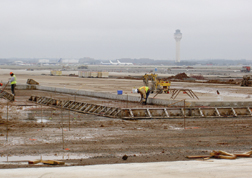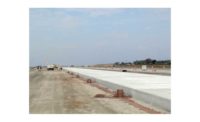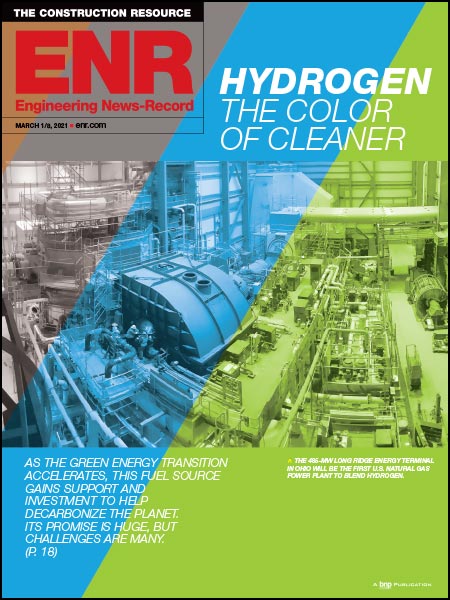 Metropolitan Washington Airports Authority Bill would boost airport construction grants, although passenger facility gaps remain.
|
After being stuck in the Senate for months, a multiyear aviation bill has new life in the chamber. With some planes grounded recently and the summer travel season around the corner, Majority Leader Harry Reid (D-Nev.) on April 28 moved a four-year Federal Aviation Administration reauthorization to the floor. Key construction provisions include an increase for Federal Aviation Administration airport construction grants and a “fix” for the projected 2009 deficit in the Highway Trust Fund’s highway account.
Clearing the way for the bill was an April 25 agreement between the Senate commerce and finance committees on raising the fuel tax for private jets. Todd Hauptli, American Association of Airport Executives’ senior executive vice president, says getting the bill to the Senate floor “greatly enhances the chance of a final [legislative] product being completed this year, avoiding having to start all over again from scratch next year.”
Even after the bill’s expected Senate passage, it would have to be reconciled with the version the House approved last September. Funding for FAA Airport Improvement Program grants won’t be an issue: Both bills authorize $3.8 billion in 2008, with annual hikes of $100 million after that, reaching $4.1 billion in 2011. “It’s not a huge boost, but it is a boost,” says Brian Deery, senior director of the Associated General Contractors’ highway and transportation division. AIP’s 2008 appropriation is slightly more than $3.5 billion.
|
Bill would close deficit in Highway Trust Fund account.
|
But there’s a big gap on passenger facility charges, another major infrastructure funding source. The House bill lifts the PFC cap to $7 from $4.50 now. The Senate is only letting lets six airports increase the fee. In House-Senate negotiations, airports will try to retain the House’s $7 cap, while airlines will seek to set it below $7 or even return the cap to $4.50, says Hauptli. “Game on,” he says.
A top construction priority is seeing the Senate’s highway fund provision adopted by the House, whose bill is silent on the issue. The Senate bill would add about $5 billion to the fund’s highway account, mostly through general fund reimbursements for costs of repairing storm-damaged roads. That would more than erase a fiscal 2009 highway account deficit the Bush administration pegs at $3.2 billion. Deery says that with high prices at the pump squeezing gas purchases, “We’re glad that there’s a little bit of a cushion in the Senate bill.”



Post a comment to this article
Report Abusive Comment